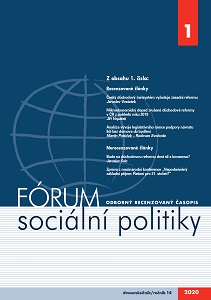Mikroekonomický dopad zrušené důchodové reformy v ČR z pohledu roku 2019
The microeconomic impact of the cancelled pension reform in the Czech Republic from the viewpoint of 2019
Author(s): Jiří VopátekSubject(s): Micro-Economics, Economic policy, Present Times (2010 - today), Public Finances, Fiscal Politics / Budgeting, Socio-Economic Research
Published by: Výzkumný ústav práce a sociálních věcí
Keywords: income-typed individuals; pension pillar; pension benefit; internal rate of return;
Summary/Abstract: The paper deals from the microeconomic point of view with the quantification of the impact of „preserved“ participation in the second pension pillar (2013−2015) on the percentage of the first pillar pension benefit with respect to the example of income-typed individuals who retired on a regular retirement basis in 2019. One year of preserved participation leads to a reduction in the percentage assessment of the pension benefit from the first pillar of around 0.43%. By means of model calculations using the example of income-typed individuals and the retirement benefit period, the objective was to determine the amount of the so-called internal rate of return (IRR) in the form of the requirement for a minimum percentage return from the first pillar. Participation in the second pillar, according to modelled situations and defined conditions, appears to be beneficial for individuals whose income is at the level of the general assessment base and up to more than double that amount. For such individuals, the IRR requirement is lower, whereas, conversely, for those on lower incomes the IRR requirement is higher. In particular, the IRR is determined to a significant extent by the period during which the first-pillar pension benefit is drawn.
Journal: Fórum sociální politiky
- Issue Year: 2020
- Issue No: 1
- Page Range: 10-17
- Page Count: 8
- Language: Czech

